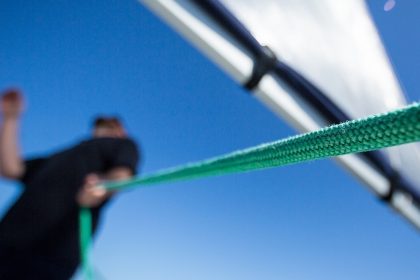
It is not uncommon that crews spending long months at sea experience anxiety attacks, fatigue, health problems, altered psychological state, and their social skills diminish. The main causes of the stress are lack of motivation, repetitive work, working with people of different nationalities, taking on too much responsibility at work, changes in work, and rare communication with family members.
It is important for the seafarers to take stress-relieving actions on the day-to-day basis, and the shipmaster’s task is to encourage the seafarers and set an example. Here are some tips to help you feel better and effectively deal with stress at sea.
TIPS FOR SEAFARERS
Stop competing with your colleagues. When at sea, the closest person is your colleague, so it is perfectly normal to have conversations on different topics. Discussing salaries, promotions, or a supposedly greater success of colleagues makes you involved in a constant competition. Although pursuing a career is a valued trait, it shouldn’t become a fixed idea. Competition damages mutual relationship and causes annoyance, jealousy and irritability.
Do not postpone work. Postponing increases stress, therefore, any tasks, even those for which you seem to still have plenty of time, should be performed right away. Monthly reports, major inspection, or other tasks with the set deadlines are often left for the last day. Completing work will make you feel calm, more motivated to undertake upcoming tasks, and proud of yourself.
Don’t let yourself be affected by negative emotions. When working at sea in a team of seafarers, you are likely to be surrounded by people in both positive and negative moods. It surely might happen that the bad mood of a colleague will greatly influence the further course of your day. Develop a positive mind-set, concentrate on work, do not waste energy, and take a break to enable yourself to have some good time. Based on such minor but positive habits, you will learn to ignore your ill-humoured colleagues.
TIPS FOR SHIPMASTER
Train your active listening skills. After all, active listening is among the most important components of professional life. Good listeners are respected and charming people. This is a great skill, enabling you to develop workplace culture, as well as to make and maintain connections. Are you interrupting your fellow seafarers? Do you let them finish their ideas? Are you tolerant at meetings and listen to the thoughts of other colleagues at sea? Sincere, close and friendly communication at sea helps maintain a stable psychological health of the crew and reduces stress.
Curb your ego. When working with a large team, it might be quite difficult to agree to a compromise when it comes to your firm beliefs, as well as to refrain from raising your voice and reminding the others of your standing and that you are in charge. Not only do you lose respect if you act cold and overly powerful, you are also viewed as a negative person who is incapable of accepting change. Remember that tolerance is crucial when at sea.
Encourage activities. Continuously remind your crew members and yourself that, although work is in the first place, you should not forget active physical exercise, reading, or other enjoyable activities that would keep your mind away from work at least for a while. An hour of physical exercise or your favourite music in the background help to relax.
Through the continuous training of your mind and control your feelings, you will help to avoid stress not only for yourself but also for others.




